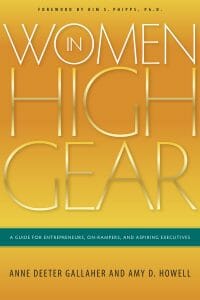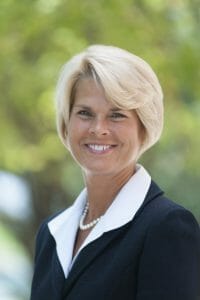#BanBossy Campaign is Not High Gear
 As women business owners and co-authors of Women in High Gear, we invest a lot of time and attention in writing, speaking, and encouraging women to “Find Their Voice” and “Tell Their Story.” Our own stories represent a tapestry of experiences, and that makes us each unique. We have benefited from the examples of strong men and women in business, and we challenge women to discover and reach their own high gear.
As women business owners and co-authors of Women in High Gear, we invest a lot of time and attention in writing, speaking, and encouraging women to “Find Their Voice” and “Tell Their Story.” Our own stories represent a tapestry of experiences, and that makes us each unique. We have benefited from the examples of strong men and women in business, and we challenge women to discover and reach their own high gear.
Last week the Girls Scouts teamed with LeanIn.org to launch a #BanBossy PSA campaign. Using celebrities like Beyoncé and Victoria Beckham they make the case that “bossy” is a pejorative, a disparaging term, and as such should be banned (yes, you read that correctly) in reference to girls. Their assumption: if young girls are called bossy, perhaps they will be disinclined to pursue leadership roles. We haven’t seen data or Pew Research stats to quantify this claim, and Googling the term “bossy” to see what images appear based on gender is not scientific evidence.
Women will never advance by telling others—men or women—how not to perceive them and what language to use to describe them. As children, we were both called bossy—by our siblings and classmates. Our parents probably called us bossy too. Why? Because we were. We had ideas and weren’t afraid to share them. 
The idea that we women will get ahead and reach new career heights, or see new doors open, because a word is banned is disingenuous to our gender and our individual leadership capabilities. Are we that sensitive? Is our emotional resilience that tenuous and delicate?
Just because someone is considered powerful, influential, politically connected, successful, or entertaining doesn’t mean we jump on a bandwagon to sign a petition to ban a word in the English language. The idea of banning a word like “bossy” is silly and a waste of our greatest resource–time. While many have asserted that this campaign has been positive for raising awareness, we believe it further isolates women from achieving the skills and experiences necessary to reach the C-suite. We all want opportunities for women to advance at work. We need women to open doors, to mentor, to advocate, to introduce young women to CEOs, to help connect the dots for success. This campaign belies the strength of women.
In fact, it’s condescending for an influential and elite group of women to create a video telling us what to do. Words are words. Actions speak louder.
 At @WomenInHighGear, we want to make sure young girls and women celebrate what we can become. We need strong women who can boss (Margaret Thatcher), women who can nurture (Ruth Bell Graham), women who can lead with courage (Marie Curie), women who can explore (Amelia Earhart), and women who can negotiate (Condoleezza Rice). We need every type of woman who can recognize her high gear potential and take action. That won’t happen by telling others what words to use.
At @WomenInHighGear, we want to make sure young girls and women celebrate what we can become. We need strong women who can boss (Margaret Thatcher), women who can nurture (Ruth Bell Graham), women who can lead with courage (Marie Curie), women who can explore (Amelia Earhart), and women who can negotiate (Condoleezza Rice). We need every type of woman who can recognize her high gear potential and take action. That won’t happen by telling others what words to use.
In an interview on Fox news last week, Penny Young Nance, President and CEO of Concerned Women for America (CWA) said, “True strength is being bossy in a way that empowers others to greatness, not to degradation.” Well stated.
In our experiences as mothers and women in business, High Gear means working hard and smart at the same time and not being afraid to tell your story, to rise to a business challenge, to recognize opportunities for professional development, and to seek support to reach goals. We believe that leadership, success, and profitability know no gender. The #BanBossy campaign diverts our attention from the more productive conversations of women in #STEM, Wall Street Journal Women in The Economy Task Force, and many other national women’s initiatives.
Being bossy can be a positive character trait. Bossy need not hold a negative connotation. We have known many men and women who are great at being bossy while leading others to success and high performance. Women in High Gear understand that our gender differences are also our strengths as we work together on teams. There are times to be assertive and there are times to be attentive. High gear means knowing the difference.
Finally, High Gear means selecting role models that possess the character, integrity, wisdom, and intelligence that young girls and women are seeking to learn from. It’s ironic that we would listen to an entertainer –who sells lyrics using profanity and intense sexuality –tell us what not to say to young girls. We do need real examples of everyday men and women leaders who work to help others, provide for their families, and care for aging parents while raising children and working.
We don’t need censorship of silly terms; we do need more high gear women and men to demonstrate confidence, courage, hard work, and emotional resilience–even to #EmbraceBossy if need be. The fortitude and productivity of future generations depends on it.
Co-written by Amy D. Howell and Anne D. Gallaher




